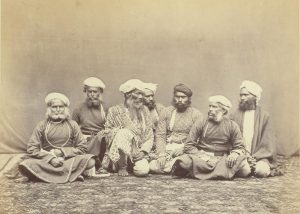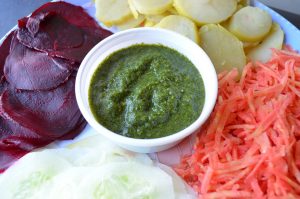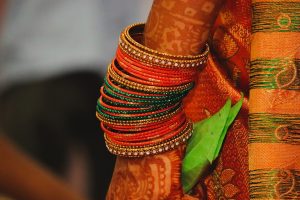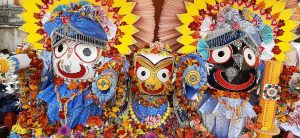20 English Words That Came From Hindi
English is indeed a very “phunny” language. One of the remarkable qualities of the language is its capacity to absorb into itself words from a number of distinct cultures and languages. That’s how it has been growing and expanding over the years to become the most widely spoken language in the world. Hindi has also played a role in expanding the English dictionary – hardly surprising, considering all the years the British spent in the Hindi heartland. On that note, here are some English words which actually came from Hindi which you might find interesting!
Also read : 15 Best YouTube Channels For Learning English You Must Follow
1. Jungle
The term stems from the Hindi word “Jangal”. It was utilized by the British settlers to refer to wild, uncultivated land. It included deserted lands and tangled forests that were overgrown with vegatation.
Image Source: Wikimedia Commons
2. Thug
Thug was derived from “Thag” a Hindi term that signifies a swindler. Thags were groups of robbers, conmen who would loot and kill travellers right after befriending them. The word descended into the English language around the 19th century,
Source: Thomas Fisher Rare Book Library (Flickr)
3. Shampoo
Champo referred to a massage or to squeeze. This term was transformed into ‘Shampoo’ in the English Language when Sheikh Deen Mohammad, a Bengali Trader opened a shampooing bath along with his wife in 1814 Brighton, introducing the term in Britain.
Image Source: Pixabay
4. Punch
The workers of the East India Company introduced this drink in the 17th century in England. Derived from the term ‘Paanch’ as it included a mix of five ingredients – sugar, lemon, soda, water and spices/tea.
Image Source: Pixabay
5. Bandana
Originated from the Hindi word “Badhnu” which indicates the process of tie and dye. The British found a calling towards the vibrant handkerchiefs which led to the birth of an all age-style. Bandana is an accessory popular across decades, though it has lost its Indian roots, its trend continues.
Image Source: Pixabay
6. Chit
Signifying a letter, Chit is derived from the Hindi term “Chitthi”. A concept that was commonly used to exchange ideas, thoughts, write to a loved one, a space utilised for critical thinking and so much more, letters are a phenomenon that is dearly regarded even today.
A thought, that was out of no surprise, borrowed into the English Language.
7. Cot
Taken from the Hindi term “khat” and “khatwa” which means bed. These began customarily as made out of jute and wood as a place for relaxation and to lie down in Indian homes.
Image Source: Pixabay
8. Bungalow
Derived from the Hindi term “Bangla”, it was used to describe the cottages or single-storeyed houses built in the style of Bengal. Past the colonial rule, the world Bungalow came into play stuck on.
Image Source: Wikimedia Commons
9. Chutney
Commonly used as a side to your main course, the word was derived from the term “chattni” which means ‘to lick’. This contrast of pickled and fresh preparations came into existence in about 500 BC in the Indian subcontinent. Its usage was followed by the Romans and then the Britishers.
Image Source: Pixabay
10. Dungaree
A style of trousers with a bib held up by straps over the shoulders emerged a very popular piece of clothing. The Dungaree originated from the Hindi term “Dungri” which signified a district in Mumbai where this fabric’s roots lie.
Image Source: Sasha Werner (Flickr)
11. Verandah
A Hindi word that had its beginning in Portuguese. In English, the world was void of its existence because of the prevalent colf weather. On their arrival to India, they were introduced to the concept of attached open spaces that almost every house had and a space where families could rewind.
Image Source: brewbooks (flickr)
12. Bangles
Stemmed from the Hindi word “Bangri” which indicated coloured glass ring ornaments worn by Indian women. Today, it has taken the shape of bracelets made from wood, plastic and glass that are worn by people across the globe.
Image Source: Pixabay
13. Loot
A word that means to ransack or steal from somebody, it finds its roots in the Hindi term “lut” which was primary used within North India until the 18th century.
14. Dinghy
It was derived from “dingi” or “dingiya”, a Hindi term that signifies small boats that travelled the Indian waters for numerous reasons, from fishing to transporting people across the place.
15. Cashmere
Derived from the original spelling of Kashmir, Cashmere refers to the fabric that is made from the wool of the cashmere goat which is also found in abundance in Kashmir, giving birth to the name of the fabric which got popular in Britain through Hindi.
Image Source: Pixabay
16. Juggernaut
Stemming from the Jagannath yatra which is a religious procession in Puri. It includes a giant carriage that carries the image of Lord Jagannath. Juggernaut signifies something that is unstoppable and large and finds its birth from the yatra.
Source: Wikimedia Commons
17. Pyjama
The word was borrowed from the Hindi term “Payajama” as it refers to lightweight and comfortable trousers which the British settlers often wore.
Image Source: Pixabay
18. Cushy
Signifies a feeling of comfort and relaxation, the word originated from the Hindi term “Khushi” which means happiness.
Image Source: Jo Zimny Photos (Flickr)
19. Shawl
Derived from the term “Shaal” which signifies a piece of fabric worn over a woman’s shoulder or to wrap around a baby.
Image Source: Pixabay
20. Mugger
Defined as a person who attacks and robs people in public spaces. It originated from “Magar”, a Hindi term that indicates a large Indian crocodile with a short snout.
We hope you enjoyed learning about these English words which came from Hindi! Let us know your views in the comments.

















